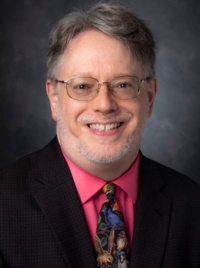John Knox
When the AMS was founded in 1919, our field was a small, quirky, out-of-the-limelight science. Today we are at the epicenter of the single most dominant global issue of the 21st century, anthropogenic climate change. My two decades of collective experience on nonprofit and government boards tells me that the AMS needs to leave some of its old ways behind, and has to “level up” as an organization to be relevant and successful on the national and world stages.
Many scientific organizations with aims similar to AMS are based in Washington, DC. Our field is at the nexus of science and policy on climate change, but we are not fully at the table when our headquarters and leaders are in Boston. Change is hard, but an address change is needed in the future.
The AMS is underpowered financially. Its donor lists and amounts given do not compare well even to smaller organizations. This situation must be addressed and reversed.
AMS governance practices need an overhaul, which is underway, to eliminate inefficiencies such as six-hour Council meetings.
Transparency in basic practices has been spotty; for example, no budget information is provided in the AMS annual reports found online. The transparency problem also intersects with the confusing recent changes to the Bulletin of the AMS, which concern me as a former Editor of BAMS.
But in my opinion the AMS has the most leveling-up to do with regard to its student members. The next generation of atmospheric scientists deserves the same level of data on enrollments, degree recipients, jobs, graduate student stipends, and starting salaries that students in other fields receive from their national professional organizations every year. If elected to the Council, this would be my top priority. More generally, since the AMS governance structure does not give students a seat on this governing board, I would be honored to serve as a voice for students on the AMS Council.
John Knox is the Josiah Meigs Distinguished Teaching Professor of Geography at the University of Georgia (UGA), where he also serves as associate director and academic advisor for the UGA Atmospheric Sciences Program. A native of tornado-prone Birmingham, Alabama, John decided to become a meteorologist at the age of five. Inspired by educator-mentors from his maternal grandmother to Ada Long, his college honors director at the University of Alabama at Birmingham (UAB), John has focused much of his career on undergraduate education and research.
After receiving a B.S. in mathematics at UAB, John attended the University of Wisconsin-Madison as an NSF Graduate Research Fellow and earned a Ph.D. in atmospheric sciences in 1996, specializing in atmospheric dynamics. John was a post-doctoral fellow at Columbia University and then an assistant professor of geography and meteorology at Valparaiso University before relocating to UGA in 2001 to put his family first. At UGA, John worked as a non-tenure-track lecturer/researcher until joining the tenure track as an assistant professor in 2008, earning tenure and promotion to associate professor in 2011, becoming full professor in 2017 and distinguished professor in 2020.
John has taught over 7,400 students in his career in 160 different sections of 40 different course titles, while also publishing nearly 70 peer-reviewed articles in research and education. In 2010 John received the T. Theodore Fujita Research Achievement Award from the National Weather Association for his work on clear-air turbulence forecasting, and was elected a Fellow of the AMS in 2020. That same year the AMS honored John with its Edward N. Lorenz Teaching Excellence Award. John has served the AMS in a number of capacities, for example as Editor of BAMS, Faculty Co-Chair of the AMS Student Conference, and Chair of the AMS Board on Higher Education.
John has led three different 501(c)(3) non-profit organizations, and in 2016 he was elected to a four-year term as a member of the Clarke County (GA) Board of Education.
